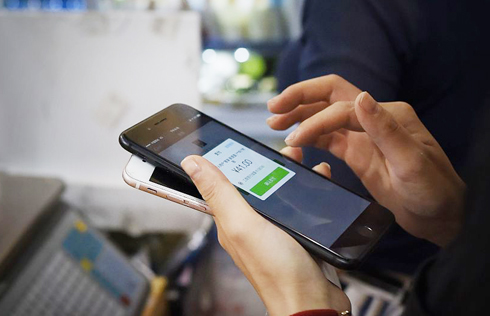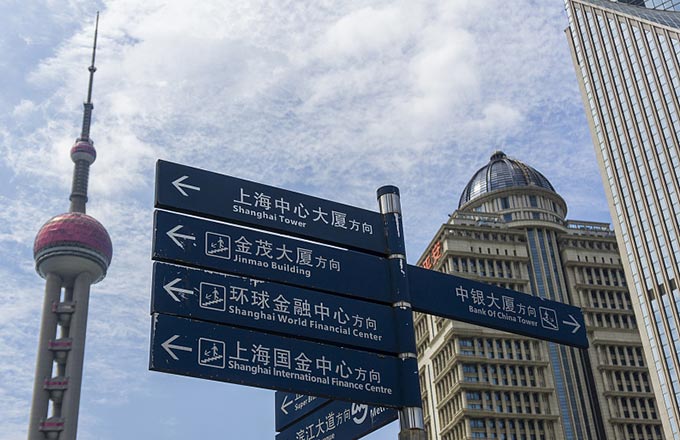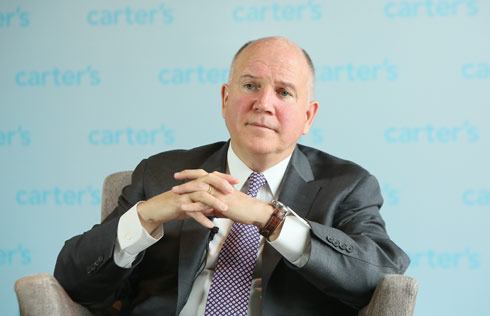Cashless trend takes hold in China
 |
|
A little girl receives gifts from Alipay staff in Tianjin. [Photo/VCG] |
GUANGZHOU - WeChat and Alipay, two major online payment platforms in China, will call for consumers to go cashless and cardless in their daily life through promotions in August.
Cashlessness is a new Chinese characteristic. In a Monday report by Tencent, the Chongyang Institute for Financial Studies at Renmin University of China, and French market research firm Ipsos, 84 percent of Chinese were "comfortable" going out with only mobile phones, no cash.
Gao Jingwen, in her 20s, can hardly recall when she last paid in cash.
"I do not need cash in a restaurant, seeing a doctor, paying electricity and water bills. I cannot think of any place I cannot pay with my smart phone," she said.
Zhang Shucui, 67, always used to take a large amount of change when going to the wet market near her home in Beijing's Haidian district, but that time has gone.
"The QR code replaced the change basket in front of the stalls," she said. "Gone are the days when I had to search all my pockets for a coin."
Monday's report also showed more than 70 percent of the 6,500-plus respondents saying they could live more than a week with only 100 yuan ($15) in cash, and 52 percent only use cash for 20 percent of their total monthly consumption.
Mei Houdui, an electronic products dealer in Shenzhen, shared a recent "awkward" experience - he wanted to borrow some cash as pocket money for his child at a party, and failed as no one had any cash in their pockets.
A?big cake?
The new payment pattern has won over Chinese consumers with its convenience and flexibility, squeezing the market share of card and cash payments.
"Alipay or WeChat?" This is the most often question posed up when a purchase is made in China. Cards and cash, the once dominant purchasing methods, have become a second option in less than half a decade.
"Mobile payment companies were worried about their future just four years ago, but the spread of technology has exceeded the imagination of almost everyone," said Li Gang, a professor at the Tencent Research Institute.
Data from the People's Bank of China showed a total of 157 trillion yuan of payments were made on mobile devices in China last year, more than 200 times that in the United States in the same period. The figure is expected to continue expanding by 50 percent each year, it said.
No big surprise
It is no accident that mobile payment have expanded so fast in China. According to a report by eMarketer, China's lack of "credit card culture" has somewhat fueled the popularization of mobile payments, especially in small cities and underdeveloped areas.
In a remote mountain village of central China's Hunan Province, one can easily buy a hen or groceries by scanning a QR code.
Payment and Clearing Association of China said in a report that mobile payment users in small towns and the countryside account for half of the total in China. The percentage of mobile payment users in the countryside is even higher than in provincial capitals.
"Mobile payment has become the norm and companies and brands cannot afford to ignore that fact," said Li.
WeChat Pay has recruited several million offline vendors. Alipay announced 10 million brick-and-mortar shops have signed for their cashless life promotion.
Mobile payment has also helped improve the outdated, time-consuming services at government offices and public sectors.
In Xi'an, nearly 70 percent of the northwestern city's drivers pay their traffic fines via WeChat instead of wasting time queuing in long lines in police departments.
Patients in Guangzhou are used to making an appointment with a doctor and paying by smart phone.
Statistics from WeChat showed that over 300 cities have public service platforms that accept WeChat payments.
Both the Internet giants have actively expanded their services overseas since last year. Alipay can be used in several hundreds of thousands of shops in over 70 countries, while Wechat has landed in 19 countries and regions, including Japan, Thailand and Republic of Korea - most popular destinations among Chinese tourists.
"The door to a new world has opened, and an infinite future awaits," Jia said.

























